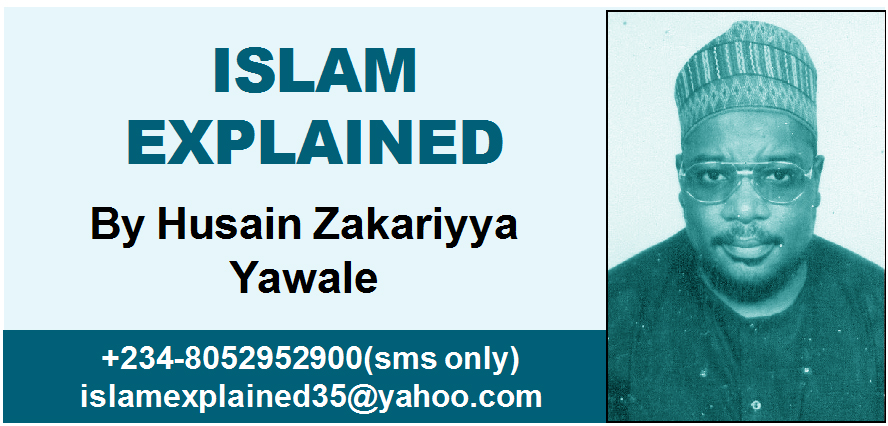By Umaru A. Pate
Without doubt, the Nigeria Union of Journalists (NUJ) has come a long way in its contributions to the unity, welfare and development of quality professionals in the country’s media industry. In its years of existence, it has positively affected many distinguished professionals who have made and are still making their marks in and out of the country. The Union is expected, like any other professionally inclined body, to safeguard the welfare of its members, uphold the standard and credibility of Journalism and ensure quality in performance to remain relevant among its clients and indeed the whole nation. The Union has a duty to reposition its members to competently drive the Nigerian media industry in the 21st century and make it stand shoulder to shoulder with its contemporaries in other parts of the world.
I believe that the choice of this topic might have been deliberate to provoke increased discourse on the adequacy of the Nigerian media professionals, particularly those of them in the northern part of the country in performing their responsibilities amidst changing times with relevance to the local setting in a global context. It can be recalled that recently some prominent people and leaders from different parts of the North gathered at Kaduna under the auspices of the Arewa Consultative Forum (ACF) where they brainstormed on the state of affairs in the North.
The gathering deliberated on some of the critical issues that are regarded as inimical to the progress of the region and understandably numerous solutions were also provided on how to address them. Clearly, it emerged from the conference that the North is hugely disadvantaged and severely impacted by incompetent leaderships, poor economic growth, conflict and internal wrangling and other forces of retrogression to the extent that the zone is increasingly being stigmatized as a theatre of violent clashes and a parasite that can hardly survive without the monthly federal subventions. Such an assessment though truly depressing is unfortunately reflective of our current situation. Thus, this presentation should simply be seen as a contribution to the ongoing brainstorming process, which we hope would lead us to some solutions based on a realistic assessment of our deteriorating condition. But let me add that we need to understand that the challenges of the North are inextricably linked to the total situation in the country.
NORTHERN NIGERIA GEOPOLITICAL ZONE:
The northern part of Nigeria is composed of nineteen states out of the country’s thirty six. It occupies a very large landscape with more than half of the country’s population of 167 million. The region is highly diverse, generously heterogeneous and used to be comparatively accommodating and tolerant as evidently and clearly reflected in the social and political behaviour of the people. The region is agrarian with majority of the people engaged in subsistence agriculture. It is comparatively disadvantaged with weak physical infrastructural base and debilitating poverty. On the latest Nigerian Human Development Index of the UNDP, the zone is lowly rated with high prevalence of poverty, social inequity, maternal mortality, infant mortality, unemployment, high illiteracy level and HIV/AIDS infections and spread, among others.
According to the Central Bank of Nigeria (2007), the zone has the highest poverty index in the country. For instance, the North-East has a poverty index of 71.2%, North West has 71.2% and the North Central (67.0%). States in the North have the least per capita income below the National Average of N20, 000 per annum in addition to having the least presence of major industrial concerns that can absorb the increasing number of unemployed young people. Little wonder that you find a high number of Almajirai and street beggars than in any other part of the country. A recent report on state of female education in the World concluded that northern Nigerian women are the least educated in the whole world. The report added that there are at least two million children roaming the streets of Northern Nigeria everyday instead of being in school. In the same vein, it has been established that Northern Nigeria has the highest record of failure of marriages or divorces in the whole world (Blueprint, Dec 28, 2011).
Furthermore, the zone experiences far more conflicts than in the other parts of the country. These conflicts are manifested as religious, ethnic, economic, political and value based. The consequences of these clashes are evidently devastating to the overall development and prosperity of the zone.
Today, fifty one years after Nigeria’s independence, one would have thought that we should have been talking about how to fine tune our agriculture; how to find more money to upgrade the education of our children; how to make sure that no one sleeps hungry or no one is without health care; and no one has to helplessly swallow any injustice, or how to reduce defence expenditure; how to more effectively fight crime or protect the entire environment; how to revamp the economy, or scale the pinnacles of IT. What are we doing instead? We... are still thinking of how to ensure our unity, fight corruption and remain alive. It can be depressing.
NEEDS AND EXPECTATIONS:
Even though the North is divided into semi autonomous states in the context of a federal Nigeria, we can still say that based on geopolitical boundary as well as psychological interest; there are some common things that keep them together. In simple terms, the North can be described as a geographical community comprising of multiple communities that are culturally heterogeneous, historically related, politically diverse but economically common. There are a number of factors that unite the people as well as many others that differentiate them. But, they are all united in their desire to conquer poverty and disease, banish illiteracy, establish and sustain good governance, and above all, guarantee good life characterised by freedom, opportunities and prosperity.
Considering the complexities in the region, it is advisable to emphasise on the common needs and expectations of its communities in the context of the states in the zone and indeed the whole country. After all, the world through the process of globalization is increasingly opening up every community for us to understand that we all share a common humanity with a common fate on a crowded planet. It is also increasingly becoming clear that no community can afford to keep itself away from the contemporary challenges that are experienced at the national and global levels. For example, epidemics like HIV/AIDS, effects of climate change and similar other occurrences can hardly be restricted to one community without the risk of spreading elsewhere. In the end, we are all interconnected as human beings either for good or bad. Thus, the needs and expectations of the communities of the zone cannot be divorced from the needs and expectations of other communities in the rest of the country.
Arguably, the dominant need of the zone is on fast tracking its process of development, even if for it to catch up with some other parts of the country. The people of the zone are desirous of peace, equity and sustainable development which will facilitate the qualitative up liftment and significant improvement in their standard of living. Stated differently, they need and expect an improvement in their human condition through the demolition of all visible and invisible barriers to a tolerable and decent living status. The current thinking about sustainable development is that it should focus on the competence and capacity of the people to transform their lives and have firm control over their affairs, environment and resources. This type of development should enable the citizens expand their choices and opportunities, allow them to enjoy greater freedom and have full dignity as human beings. These are the minimum requirements expected of any nation to guarantee its citizens for them to be on the path of sustainable development.
MAINSTREAMING GLOBAL INITIATIVES:
Efforts are ongoing at the global and national levels to address the issue of socio economic developments. Therefore, the concern of the media should be on how the North is positively mainstreamed in the ongoing movements towards participatory democracy, improved infrastructural base, strengthened industrial base, achievement of the Millennium Development Goals and a lot more. The communities of the North need to be sure that they are not left disadvantaged as the seeds of development are blossoming in other communities through the first quarter of the twenty first century.
Nigeria is a signatory to several international instruments, conventions and treaties which are translated into the national agenda. Equally, the country had mainstreamed several global initiatives into the national process and vision. At present, there is a road map which hopes to propel Nigeria’s economy to be among the best twenty economies in the world with a growth rate of 13 to 15 percent yearly up from the present 6 percent. Similarly, the country has developed the National Economic and Empowerment Development Strategy (NEEDS I and II) to guide the national development process in a systematic, strategic and timely framework. At the state level, every State has developed its SEEDS in the context of the NEEDS. Furthermore, some of the Local Governments have also domesticated the SEEDS in to LEEDS. In addition, the country has committed itself to the full implementation of the Millennium Development Goals (MDGs) in line with the global agenda. Similarly, the Federal Government has specifically adopted a Transformation agenda for the systematic and timely attainment of sustainable development in the country. The question then is: where are the communities of the North situated on the radar of all of these agendas and goals? What is their strategic positioning to be able to partake in the flight to diminish underdevelopment and usher in development and prosperity? How do the media in the zone fit in to the matrix? Have the managers and operators of the media, particularly those in the Government dominated radio and television houses been able to define their bearing to successfully navigate the minds and behaviours of their audiences toward the movement to newer realities? Are the media houses themselves sufficiently equipped and mobilised to strategise on how best to buy in to the global and national initiatives for the ultimate benefit of their audiences through the defining of local agendas that are in the context of the global and national agendas?












